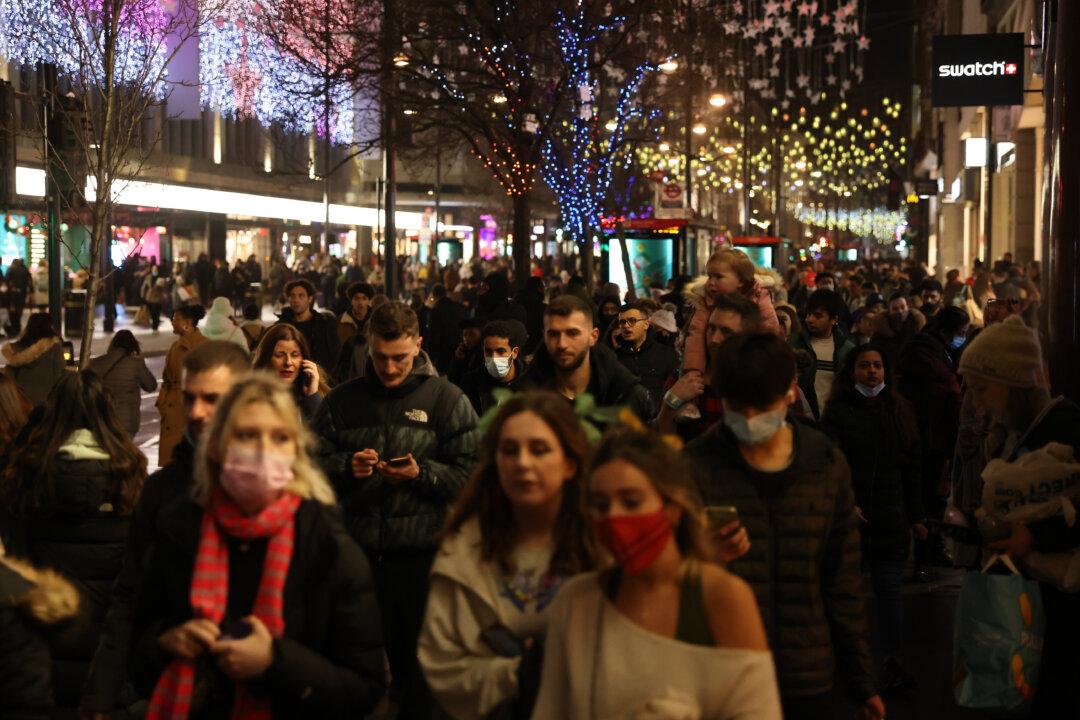COVID-19 will become “just another cause of the common cold” and people who test positive will have to be allowed to go about their normal lives as they would do with any other cold, a British medical professor has said.
Paul Hunter, professor in medicine at the University of East Anglia, told BBC Breakfast on Dec. 28: “COVID is only one virus of a family of coronaviruses, and the other coronaviruses throw off new variants typically every year or so, and that’s almost certainly what’s going to happen with COVID—it will become effectively just another cause of the common cold.”





